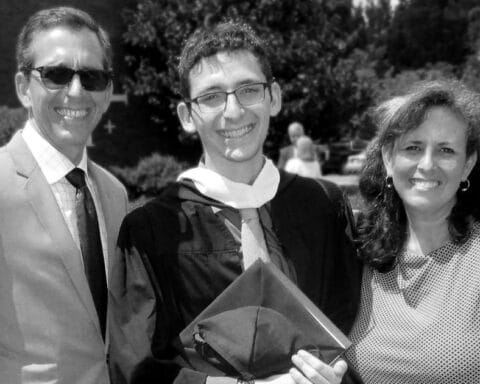We sometimes hear the admonition that we should “forgive and forget.” The implication is that authentic forgiveness of a transgression necessarily implies forgetting the offense. For example, when someone expresses regret for some harm, we might say, “It’s already forgotten.” Obversely, we might feel compelled to tell the offending party to banish the deed from his mind. As we (claim to) forgive the offense, we encourage the offender to forget it. “It never happened,” we might say.
There’s a certain psychological comfort to this exchange. As the offender, I want to be exonerated. But I also want to feel that the person I have harmed holds no residual anger or grudge held against me. Thus, I want him to forget the offense. Conversely, the offended party wants the transgressor to know that his pardon is authentic and permanent. Thus, forgetting seems to be a constituent aspect of forgiveness, on both sides of the offending equation.
Memory is part of morality
This impulse to think we should forget transgressions as a part of forgiving them might be a noble sentiment, but it’s probably wrong. In the first instance, can we really erase something from our memory? And even if we could, I suggest that authentic offering and receiving forgiveness requires remembering the offensive action, the person who committed it, and the circumstances under which it arose.
Forgiving and accepting forgiveness are moral skills. Like any skills in our moral lives, they are formed for good or ill by practices and habits that become virtues or vices. We become a certain type of person, at least in part, by practicing the habits that a certain type of people practice, and in the way they practice them. Yes, moral development often involves mimicking the habits of moral people.
We become moral persons, however, not merely by performing moral actions, but also incorporating them into our moral memories. A good moral action is not achieved simply by choosing a good moral object. That choice can be the result of all sorts of causes that have nothing to do with the virtue of the person making the choice. For example, it might be motivated by fear or ignorance. Or we might be forced to choose a good moral object against our volition. The moral object is good, but there’s no virtue in the agent who “chooses” it, if the choice is not properly situated.
Rather, for the action to be virtuous, we must choose the object for the proper reason, at the appropriate time, in the just amount and, if applicable, for the correct person. When we do this, we not only learn to choose the proper object, but also to become the kind of person who does so by habit. These practices and habits become an important part of our ongoing story, so that we can develop the virtues (and avoid the vices) that form our moral lives.
This is why memory is a necessary constituent element of moral development — even the memory of ways we have wounded (or have been wounded by) others. We may forgive the transgression. But we only grow as moral agents by remembering — and practicing — the habits that make us people capable of forgiving and being forgiven.
A lesson from Brandi Carlile
I am reminded of the impossibility of forgetting — and the importance of remembering — in Brandi Carlile’s song, “Every Time I Hear That Song.” The song is addressed to the former lover of the singer in the wake of a relationship that ended badly. We don’t know what offense either party committed, nor the details about the causes of the breakup. But we do know that the singer (at least from her perspective) was the offended party. The singer thinks she is over the hurt of the breakup — except for every time she hears a certain song.
The heart of Carlile’s song is in the chorus, including an important late variation. Its first iteration is,
“By the way, I forgive you
After all, maybe I should thank you
For giving me what I’ve found
‘Cause without you around
I’ve been doing just fine
Except for any time I hear that song.”
Between the choruses the verses describe in very general terms the causes and residual effects of the end of the relationship. Then the song ends with this subtle variation on the chorus:
“By the way, I forgive you
I never will, never will forget you
For giving me what I’ve found …”
In the variation on the chorus, the singer confesses that she really cannot forget. But that’s a good thing. Remembering is essential both to the healing of the parties involved and, thus, their ability to avoid the causes and faults of the harms committed. Neither do themselves any service by forgetting these things. In fact, forgetting makes it more likely that similar offenses may occur in the future. Yes, the singer must forgive. But for the forgiveness to have its full moral weight, including its ability to form the moral lives of the parties, they must never forget why the need arose.
Like many things we encounter in our day-to-day lives, subtle forms of grace can be found in “Every Time I Hear That Song.” Carlile teaches us that forgiveness is not throwing a switch. Rather it’s a process that may be accomplished in fits and starts, both in its offer and reception. But in order to avoid the future occasions in which forgiveness might have to be begged or granted, we must never forget the causes of those occasions. Granting and accepting forgiveness are moral skills that must be remembered. Forgive, yes. But never forget.





